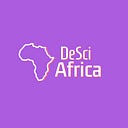Revolutionizing Global Health: The Power of Decentralized Science (DeSci) — Part Two
Our last post was fun! We showed you some global health challenges and showed you how DeSci can be used to solve these problems.
Today, we’ll do something even more fun. We’ll show you the potential benefits of decentralized science and how they contribute to the advancement of health.
Ready? Let’s go!
Potential Benefits of Decentralized Science to Health
Efficient Patient Health Records Management
Blockchain technology, first introduced as the underlying technology of Bitcoin, has evolved into a pivotal force in healthcare’s digital transformation. Its core principles — decentralization, security, transparency, and immutability — offer a profound opportunity to address longstanding challenges within the healthcare sector.
One of the primary areas where blockchain is making a significant impact is in the management of patient health records. Traditional systems often silo patient data within individual healthcare institutions, leading to fragmented records and limited accessibility for patients. With blockchain, patients can take control of their health data, granting access to healthcare providers as needed. This not only ensures data security but also facilitates seamless data exchange between healthcare organizations thereby improving quality service delivery.
Enhancing Health Data Integrity and Security
A fundamental feature of blockchain technology is its ability to create tamper-proof ledgers. In healthcare, this translates into enhanced data integrity and security. Every transaction, whether it involves updating a patient’s record or verifying a clinical trial result, is recorded on an immutable ledger — Blockchain. This not only reduces the risk of data breaches but also ensures that healthcare data remains accurate and trustworthy.
Clinical trials, the lifeblood of medical research, are also benefiting from blockchain’s transparency and integrity. Smart contracts automate consent management and data sharing, creating a trustless environment for clinical trial data. Researchers and regulatory bodies can access tamper-proof data, accelerating the research process and ensuring research outcomes are beyond reproach.
Interconnected Healthcare Ecosystem
In the age of information, interoperability is key to providing comprehensive healthcare. Yet, traditional systems often struggle to share resources effectively, causing incompatibility with external systems. This challenge is particularly evident in the exchange of medical data among different organizations, including healthcare providers, physicians, and research institutes. Blockchain’s adaptable, secure, and segmented approach to data processing and governance offers a solution. By interconnecting disparate healthcare systems, blockchain is driving the creation of an integrated and patient-centric healthcare ecosystem.
Global Collaboration and Research
Blockchain’s decentralized nature extends its influence to global health collaboration and research. By connecting researchers, healthcare providers, and organizations from around the world, blockchain enables collaborative efforts to address pressing global health issues. The ability to securely share research data, conduct cross-border clinical trials, and streamline research funding on a global scale has the potential to accelerate the development of treatments and solutions.
Building Trust and Security
Maintaining patient privacy while exchanging data across institutional boundaries presents a significant challenge. Traditional approaches to access control often rely on trust between data owners and the entities storing that data. Such entities are typically servers responsible for defining and enforcing access control policies.
Data provenance, which encompasses the historical record of data and their origins, plays a crucial role in achieving transparency and auditability in electronic health records (EHR). Ensuring trust in EHR software systems requires a comprehensive understanding of data lineage and integrity.
Conclusion
Blockchain technology holds the potential to revolutionize healthcare by fostering trust, enhancing data exchange, and ensuring the integrity of critical healthcare information. As the healthcare ecosystem continues to evolve, embracing blockchain may be the key to achieving a higher level of trust, interoperability, and data security across the sector. It is a future where healthcare knows no borders and the potential for innovation is boundless.
